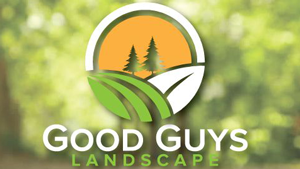Retaining Walls in Abbotsford
Retaining walls can be beautiful as well as functional. You don’t need to compromise aesthetics for practicality or performance. Bring your project ideas to our professionals to identify the right retaining wall materials for your space and get the maximum value for your hardscaping investment.
At Good Guys Property Maintenance Inc, we have the knowledge, experience and manpower to create an endless variety of outdoor settings, paths and seating areas. Whether you’re looking to add a retaining wall to a residential property or a commercial one, we can provide the style, shape and color that will make any property pop. Contact us for your wall landscaping projects.
Retaining Wall Systems
We can design, build and install, and shape size or color stone walls that will turn your property into the oasis you deserve and desire. We provide a variety of retaining wall services such as:
- Custom Stone Wall and Retaining Wall Installations
- Wall Structures
- Block Retaining Wall
- Retaining Wall Construction
- Retaining Wall Removal
- Retaining Wall Replacement
Retaining walls and interlocking stone walls will not only restrain soil to unnatural slopes but will also enhance the beauty and value of your property.
Retaining Wall Construction in Abbotsford
A retaining wall is vital to holding or retaining soil behind it. There are many types of materials that can be used to create retaining walls, like concrete blocks, poured concrete, treated timbers, rocks or boulders. Some are easy to use, others have a shorter life span, but all of them can retain soil.
While wood is often an inexpensive and simple choice for a retaining wall, its short lifespan makes it a relatively poor choice.
As the wood decomposes, so does your retaining wall and the integrity of your usable space. Stones, rocks or boulders can create beautiful retaining walls – ask our landscape specialists which materials best suit your needs.
Free-Standing Retaining Wall
Add a touch of elegance to your curbside appeal while upgrading your privacy and security. Free-standing walls can be built using a variety of materials. Our design team can show you just how impressive your new additions can be.
In order to recommend the right wall materials for your type of application, we focus on your budget and time schedule to make sure your landscape construction suits you. We work with environmentally friendly materials to keep your space healthy and as green as possible.
Build Your Dream Retaining Wall System with Good Guys Property Maintenance Inc
A retaining wall provides more than just safety and protection – it can transform your backyard into a stunning, well-designed courtyard. Good Guys Property Maintenance Inc is proud to offer a variety of retaining walls that can add stability and appeal to any landscape design.
We take pride in building retaining walls that are grounded with a solid foundation, using proper materials, backfill, drainage and with the use of state-of-the-art materials and techniques.
From building stunning stone walls to gracing your yard with spectacular flowers, we get our hands dirty so you don't have to. Our full-service hardscape and retaining wall services will get your space looking elegant and keep it that way. Call (778) 919-3415 today!

